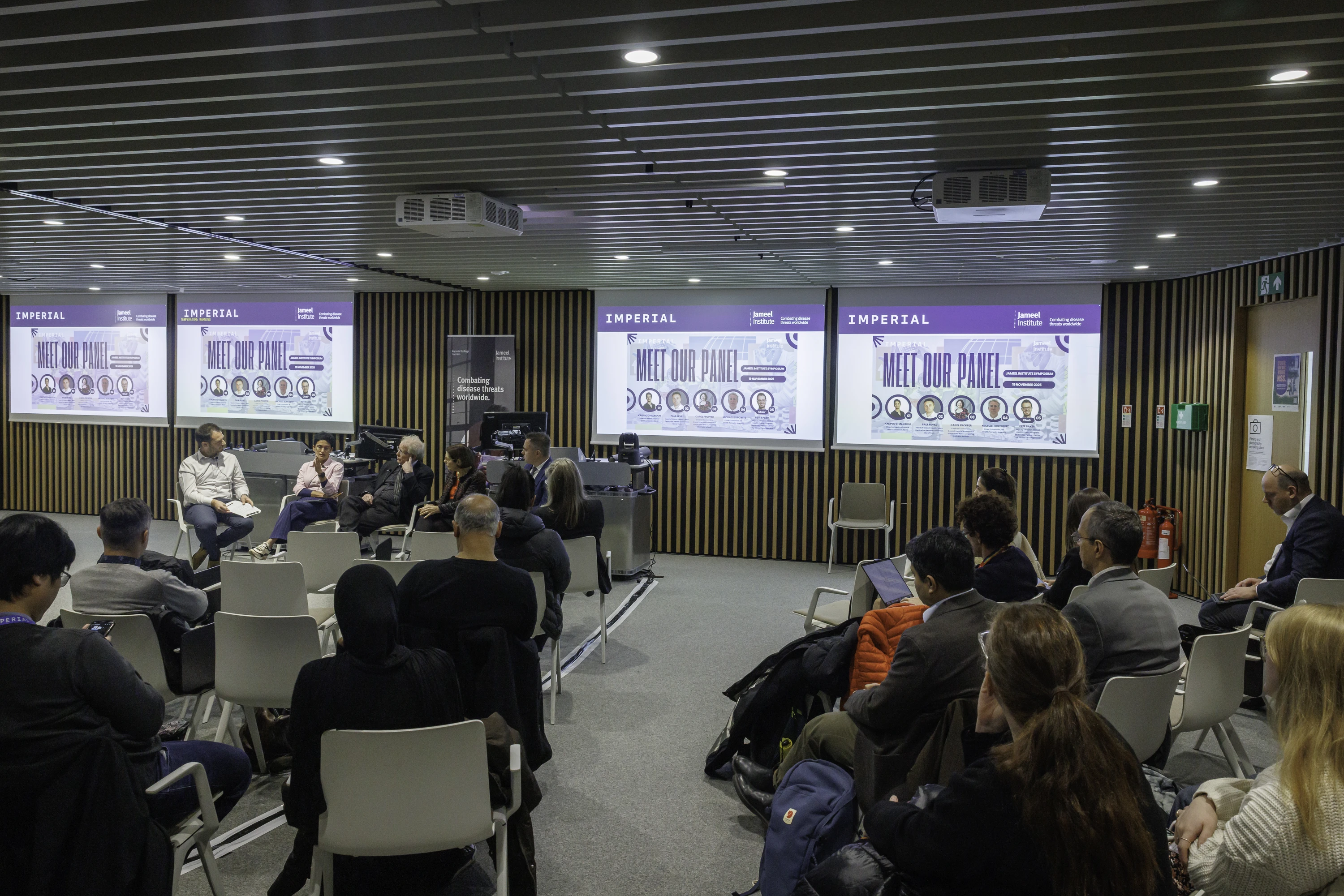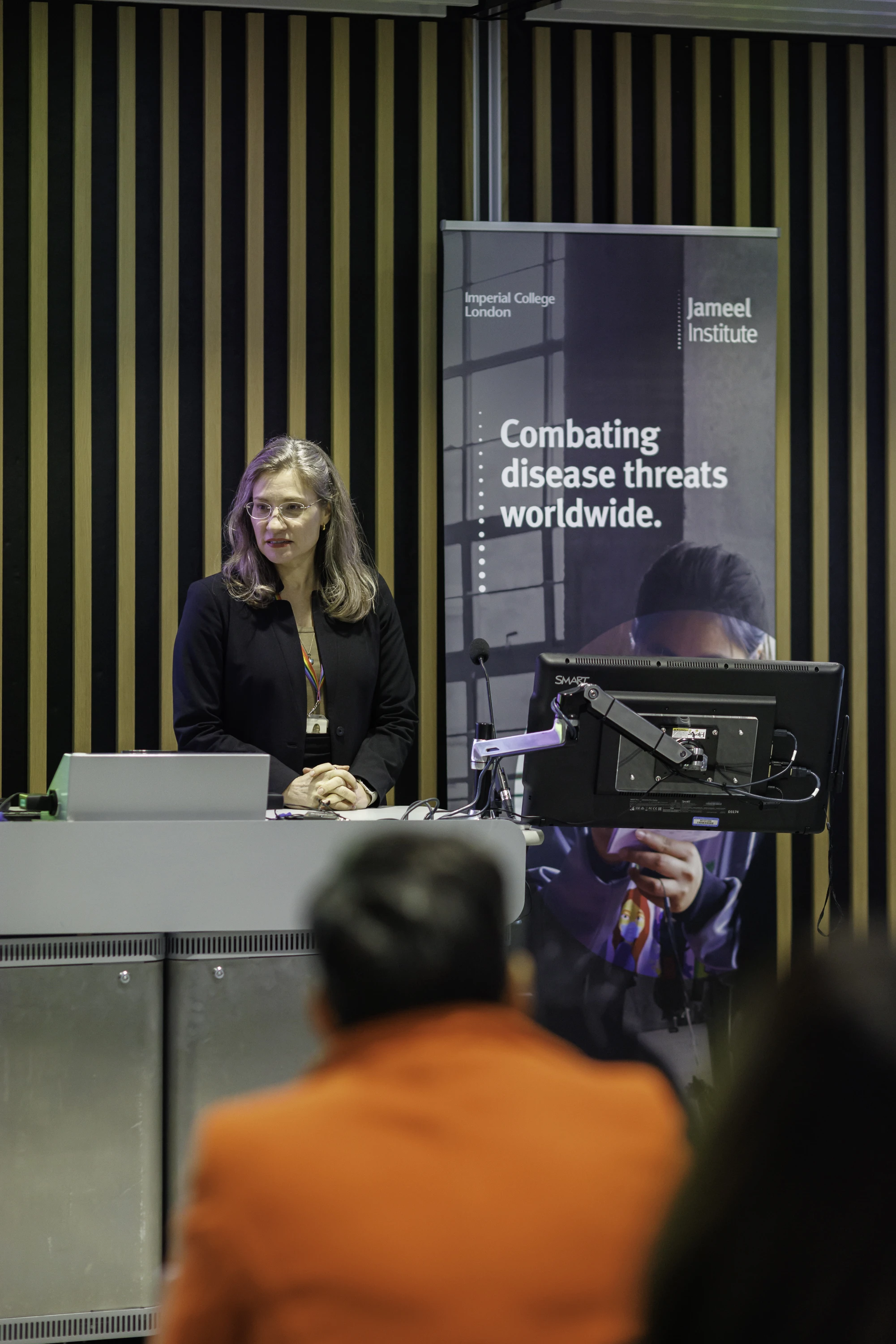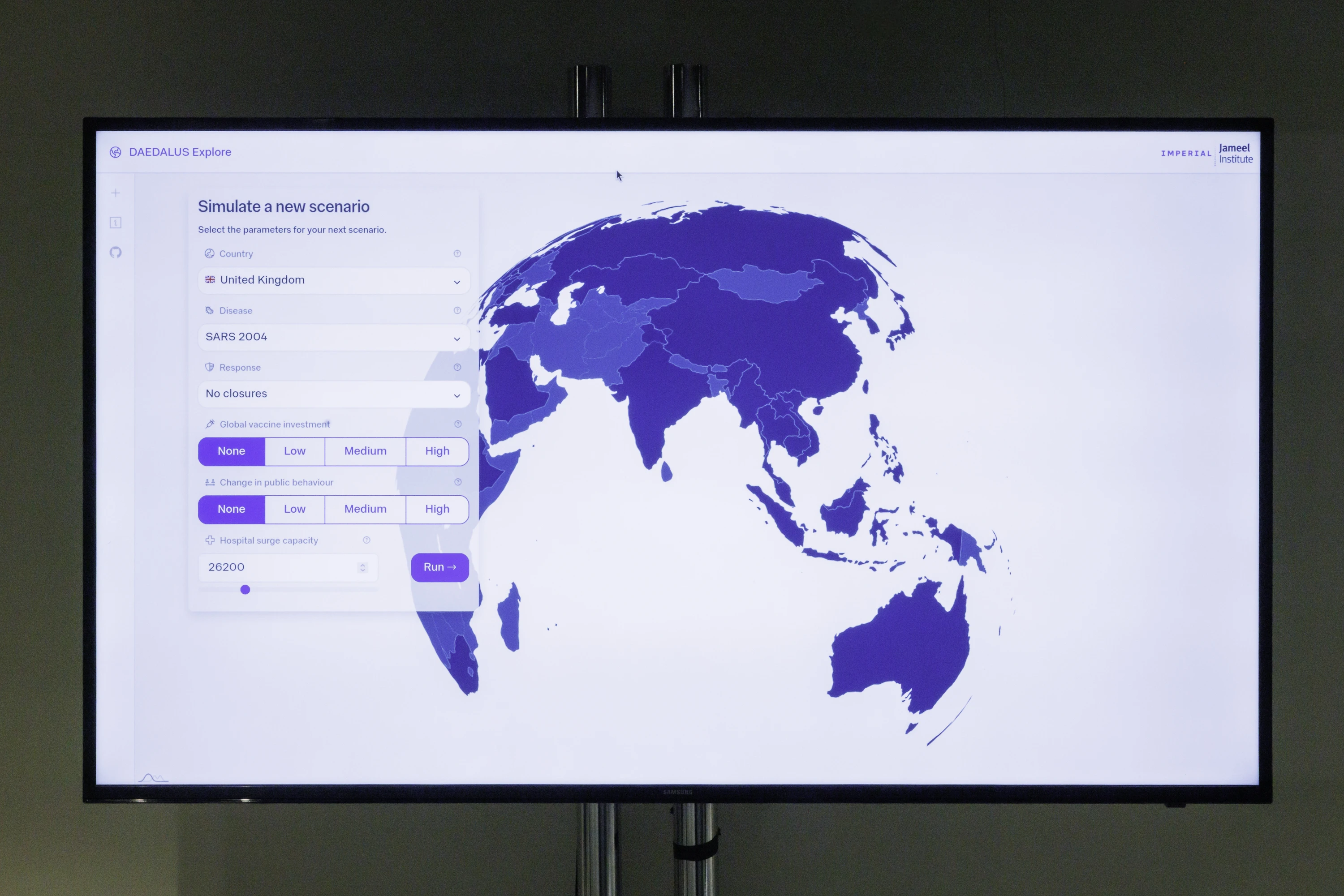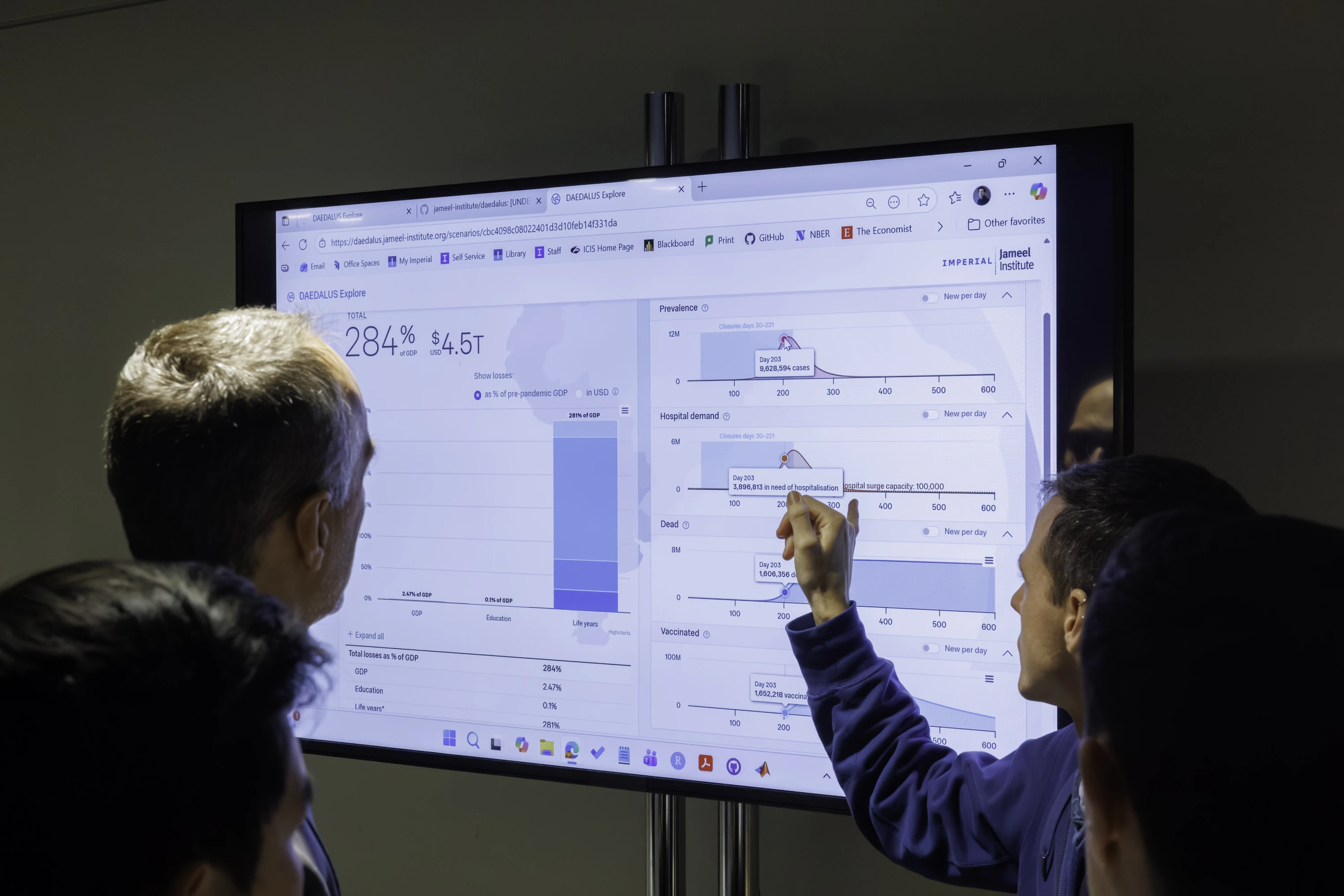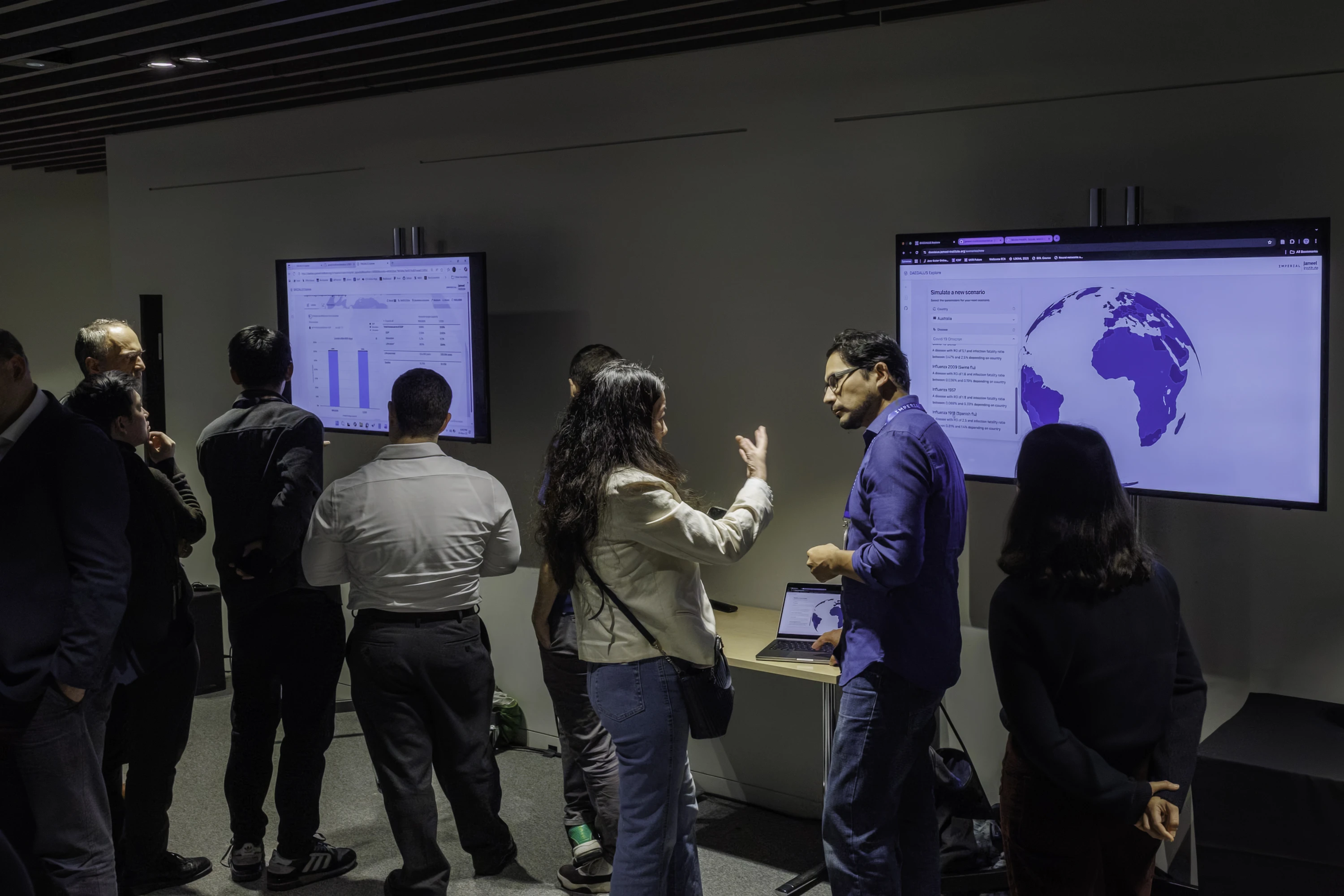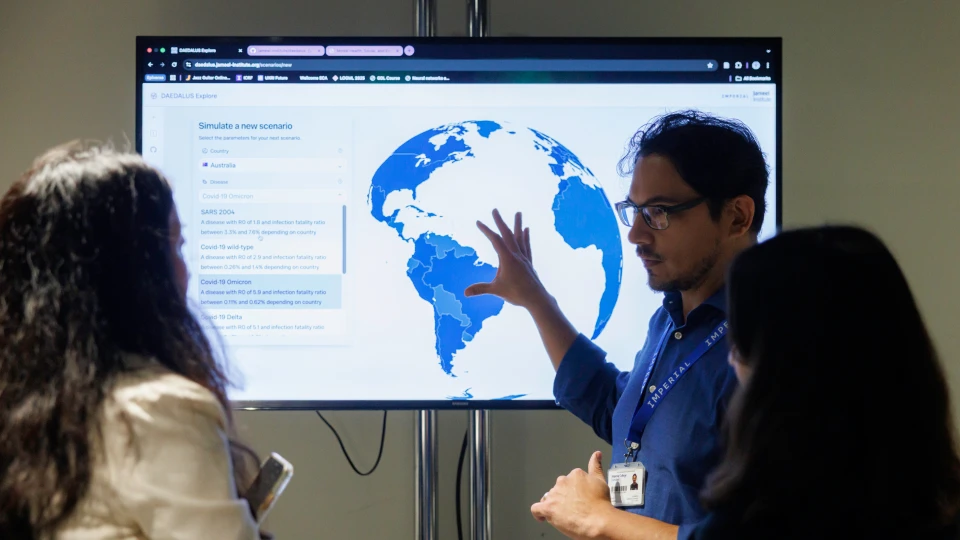
LONDON, ENGLAND – 19 NOVEMBER 2025 | The Jameel Institute at Imperial College London welcomed researchers, policymakers and global health experts to its annual symposium held today at Imperial’s White City campus.
This year’s symposium – Health economics for improving population health under constrained budgets: Lessons from high- and low-income settings – explored how evidence-based health economics can guide more effective and equitable healthcare delivery, even when resources are limited.
Featuring research presentations from experts across Imperial, the symposium showcased innovative research tackling critical questions, from optimising resource allocation in low-income countries to improving preparedness and efficiency in high-income health systems.
In a panel discussion chaired by Pete Baker of the Centre for Global Development, leaders in global health policy and economics from the World Health Organisation, UK Health Security Agency, the University of York and Imperial Business School examined how health systems can deliver more value for money and better outcomes, even in the face of fiscal constraint.
A highlight of the symposium was the UK preview of DAEDALUS Explore, a new, open-access, data-driven platform developed through the Jameel Institute–Kenneth C. Griffin Initiative for the Economics of Pandemic Preparedness (EPPI).
Supporting seven pathogens and 67 countries, DAEDALUS Explore aims to provide critical data and analysis to inform public health decisions related to pandemic preparedness and disease outbreaks around the world.
Powered by DAEDALUS, the Jameel Institute’s integrated economic-epidemiological model, the platform allows users to simulate the health, economic and educational impacts of different pandemic response strategies.
The tool’s interactive design lets users explore how investment in preparedness – such as vaccines, hospital capacity or mitigation policies – can influence the outcomes of future pandemics.
Its open-access format ensures that policymakers, researchers and the public alike can engage with the data.
Attendees at the symposium were the first to experience the platform ahead of its global launch in Singapore in Spring 2026.
Professor Katharina Hauck, deputy director, Jameel Institute, said: “DAEDALUS Explore represents a major step forward in connecting rigorous academic research with real-world policy. By making these simulations open and interactive, we’re helping decision-makers, and the wider public, understand the complex trade-offs at the heart of pandemic preparedness.”
Nader Iskandar Diab, head of programmes, Community Jameel, said: “DAEDALUS Explore exemplifies how scientific research can be turned into practical tools that serve communities worldwide. We are proud to support this important step toward improving global health outcomes and allow for the implementation of better-informed policies.”
As countries face tightening budgets and growing health challenges, the 2025 Jameel Institute Symposium underscored the critical role of health economics in building more equitable and efficient systems.
The UK preview of DAEDALUS Explore demonstrated not only Imperial’s leadership in pandemic modelling and health economics but also its commitment to sharing data and tools that empower better decision-making globally.
For more information about DAEDALUS Explore and the Jameel Institute’s work, visit imperial.ac.uk/jameel-institute.

